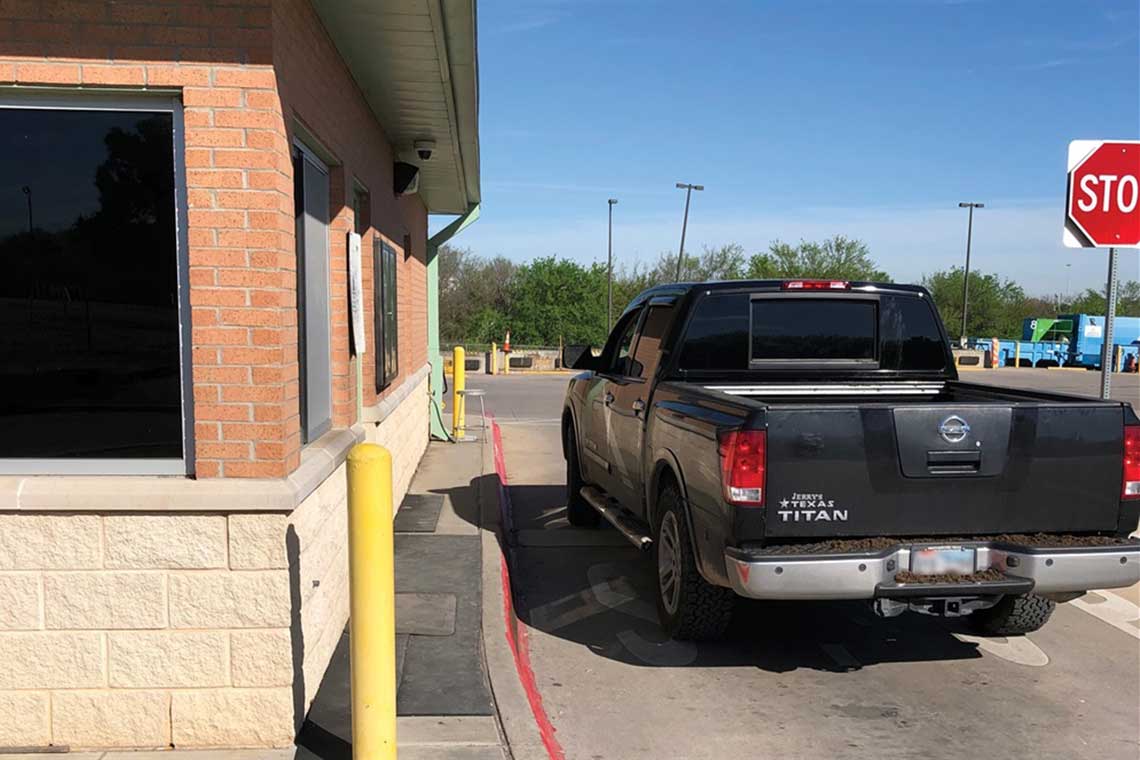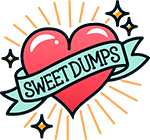
In Fort Worth, the management of household waste, recyclables, and hazardous materials is governed by specific regulations designed to promote environmental sustainability and community cleanliness. Understanding these rules is crucial for homeowners, renters, and anyone involved in waste generation or disposal projects. Sweet Dumps is committed to helping Fort Worth residents navigate these regulations, ensuring that waste disposal is not only compliant but also efficient and environmentally responsible.
Access to Drop-Off Stations
Fort Worth provides Drop-Off Stations for the disposal of trash, brush, recyclables, and household chemicals, catering to homeowners and certain renters. To access these facilities, individuals must present a recent Fort Worth water bill or a current driver’s license with a Fort Worth address, verifying an active sanitation account. Apartment dwellers are eligible to use the stations for recyclables, emphasizing the city’s commitment to recycling efforts.
What You Can Dispose of and How
Drop-Off Stations accept a variety of materials, including bagged garbage, single-stream recyclables (e.g., paper items, cardboard, plastic containers, and metal cans), scrap metal, bulky trash, yard trimmings, and more. Notably, the stations have restrictions on vehicle types, only permitting single-axle trailers for material transport, which excludes box trucks and commercial vehicles. This ensures that disposal processes remain orderly and accessible to individual residents rather than commercial entities.
For items requiring special disposal, such as household chemicals and electronics, designated areas and procedures ensure safe handling. Fort Worth residents also have access to free mulch and secure paper shredding services, contributing to the city’s environmental protection efforts.
The Full List of Acceptable Items
- Bagged garbage
- Single stream recyclables, including all clean and dry paper items:
- newspaper, magazines, catalogs
- junk mail cardboard boxes
- chip-board
- office paper
- aseptic milk
- juice and soup cartons
- rinsed and empty plastic containers (rigid plastic milk jugs, detergent containers, etc.)
- glass, steel and aluminum containers and cans
- Scrap metal materials, including:
- gutters
- metal fencing and posts (If posts contain concrete or other non-metal material, it must be separated from scrap metal collection and placed in regular trash disposal.)
- rebar
- mailboxes
- baking or cooking sheets
- pots, pans and skillets
- car parts (No engine parts accepted.)
- Bulky trash (larger than a residential trash cart)
- including broken furniture
- vacuums, mops or brooms
- framed mirrors or paintings
- glass windows or doors
- patio umbrellas
- small bookshelves
- lamps, chairs, tables
- mattresses and box springs
- Clean brush
- Yard trimmings (Must be securely contained or bagged.)
- Passenger vehicle tires Limit four per household every six months
- Minor do-it-yourself (DIY) residential remodeling debris Limit 10 cubic yards every 30 days
- Appliances such as refrigerators and air conditioners that do/do not contain Freon or other coolants
- Small lawn and garden equipment (Drain all liquids, gasoline and oil.)
- Electronics, computers, televisions Limit two every six months
- Household chemicals and products:
- automotive fluids (gasoline, motor oil, transmission fluids, brake fluid and antifreeze in labeled containers)
- all batteries (household and auto)
- home and bathroom chemicals
- cooking oil, lawn/garden chemicals (herbicide, pesticides and fertilizers)
- pool chemicals
- light bulbs (fluorescent, incandescent, CFLs)
- paint Limit 20 gallons per household every 90 days
- Fire Extinguishers
- Free secure paper shredding (Available to residents every day.) Download PDF for further details(PDF, 595KB).
- Secure shred carts have been installed at all drop-off stations.
- Residents can bring up to three boxes (letter/legal size dimensions: 15″L x 12″W x 10″H) per visit and up to six boxes every 30 days of personal, sensitive documents to be securely shredded.
- Styrofoam is now accepted at all drop-off stations. Items that can be recycled include:
- cups
- coolers
- foam ice chests
- to-go food containers
- egg cartons
- rigid packaging (Styrofoam used for shipping and packing items such as electronics)
- Ensure food containers are empty, clean and dry.
- Household Hazardous Waste (HHW)
- Residents are to place all household chemicals on the designated HHW collection tables.
Prohibited Items and Illegal Dumping
Understanding what is not accepted is as vital as knowing what is. The stations do not accept loose trash, leaves, grass, or other small debris unless securely contained or bagged. Hazardous materials like explosives, asbestos, and titled vehicles are also prohibited. Fort Worth takes a firm stance against illegal dumping and littering, a crime that undermines community cleanliness and environmental health. Residents are encouraged to report illegal dumping to help maintain the city’s beauty and safety.
The Full List of Unacceptable Items
- Loads that are not properly tarped, secured or covered will not be accepted.
- Loose trash, leaves, grass, or other small debris (All small loose items must be securely contained or bagged.)
- Commercial/Business waste or materials
- Landlord-based residential waste from Fort Worth rental properties. These items are accepted at the city’s Southeast Landfill for minimum one-ton rate or per-ton fee for larger loads.
- Concrete, rock, dirt and ceramic tile.
- Explosives or ammunition. For proper disposal of these items, call 817-392-4222.
- Roofing material (residential or commercial). Landfill disposal sites are available for these items.
- Asbestos
- PCBs or polychlorinated biphenyl
- Oxygen, C02, butane, helium or propane tanks
- Radioactive items such as oilfield pipes or smoke detectors
- Titled vehicles such as mopeds, motorcycles, or jet skis
- Vehicles must be taken to the Goodwill Center at 4005 Campus Drive, or
- Coordinated for pickup by Goodwill directly at 866-492-2770.
- For Paper Shredding Program, the following will not be accepted:
- metal clips, binders
- CDs, DVDs, floppy disks
- photos
- credit cards
- plastic of any kind
- No documents with name and address only; these should be recycled.
- These items shall be placed in regular waste or recycle containers where applicable.
Environmental Initiatives and Restrictions
Fort Worth’s Drop-Off Stations are part of a broader initiative to encourage responsible waste management and recycling. The Food Scrap Composting Program is a notable effort, allowing residents to turn food scraps into compost, diverting waste from landfills and enriching soil. However, the program, like the Drop-Off Stations, has guidelines to ensure that the benefits reach as many residents as possible while maintaining program integrity.
How Sweet Dumps Enhances Waste Disposal Efforts in Fort Worth
While the city’s Drop-Off Stations provide invaluable services, navigating the regulations and restrictions can be challenging, especially for large projects or those unable to transport waste themselves. Sweet Dumps offers roll-off dumpster rentals that complement the city’s efforts, providing a convenient, flexible solution for managing waste from renovations, cleanouts, and other large-scale projects. Our services are designed with compliance, efficiency, and environmental responsibility in mind, offering an effective alternative or supplement to using Drop-Off Stations.
Our dumpsters are available in various sizes, accommodating projects large and small, with transparent pricing and no hidden fees. Whether you’re decluttering, renovating, or managing construction debris, Sweet Dumps ensures that your waste disposal process is compliant with Fort Worth’s regulations, environmentally responsible, and as hassle-free as possible.
Embracing Responsible Waste Management Together
Fort Worth’s commitment to sustainable waste management and environmental protection is evident in its Drop-Off Station regulations and initiatives like the Food Scrap Composting Program. By staying informed and choosing compliant disposal methods, residents can contribute to a cleaner, greener Fort Worth. Sweet Dumps is proud to support these efforts, providing residents with reliable, convenient waste disposal options that meet the city’s environmental and regulatory standards. Together, we can make a significant impact on our community’s health and sustainability.

